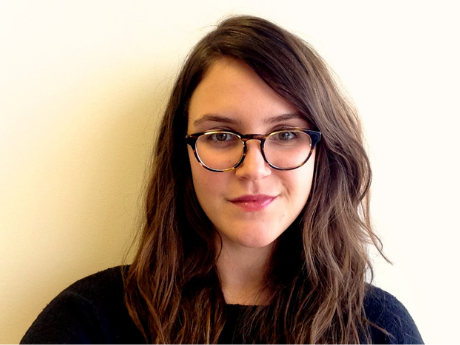New American Poets
New American Poets: Jessica Fjeld

Midwifery
The pre-oedipal gypsy songs. The whir of the prairie. The things for which one never turns one's head. The things that never get a wave. The door that keeps on opening. The vast distance of ten minutes. The cup of coffee—Chaucer is in it. The borderlessness of the great-grandmother. I ask the question. The question is about continuity, about the elephant in the Sioux charge. The honesty with which a word follows another. The small, cold feet in straw.
Poem © Copyright by Jessica Fjeld. All rights reserved. Originally appeared in Invisible Ear. Reprinted with the permission of the author.
When did you set your foot on the path of poetry? Did you feel a sudden bolt? Or did you grow gradually more passionate about poetry?
It was sixth grade, and I was trying to come up with something to distract my teacher from the fact that I hadn't done my spelling homework again. It worked!
Do think that poetry can have an effect on everyday speech? How?
I think poetry can have an effect on everyday brains. I think poetry, like all art, strives to create itself ab origine, and in the process to resist that which is lazy or habitual. Consequently, good and successful poems give us new ways to think, to bend our brains open in a subtle way. That must have some impact on speech, for the people who read poems anyway.
Are there poems, poets, or anthologies that have opened up or radically altered your ideas of what can be done in poetry? How did they do that?
John Ashbery hit me like a big door in a big wall when I encountered his work in college--a door I feel very lucky to have fallen through. Maybe before I read him I hadn't thought to apply the shortest-distance-between-two-points-isn't-always-a-straight-line idea to communication, and meaning. It was a major insight for me at the time, that a poem could document a process, rather than explicate an idea that existed for the poet beforehand. Also, Ashbery taught me how to be a better reader, to be patient with myself while I learn to read work that is new to me.
Do you think that your poetry or poetry in general speaks to spiritual or religious yearnings and struggles? If so, how?
I've done a lot of reading and research into religion and the philosophy thereof, and I think, yes, it animates my poems in some way. In many world religions, the divine is figured as the absolute other, that which can't be humanized, can't be normalized, can't even properly be expressed. The existence of such a thing, of dark matter, of the Lacanian Real, of the unbridgeable gulf between ourselves and others, however you choose to think of it: I think it's the engine of a lot of my poems. Maybe not the love poems--or maybe the love poems especially.


